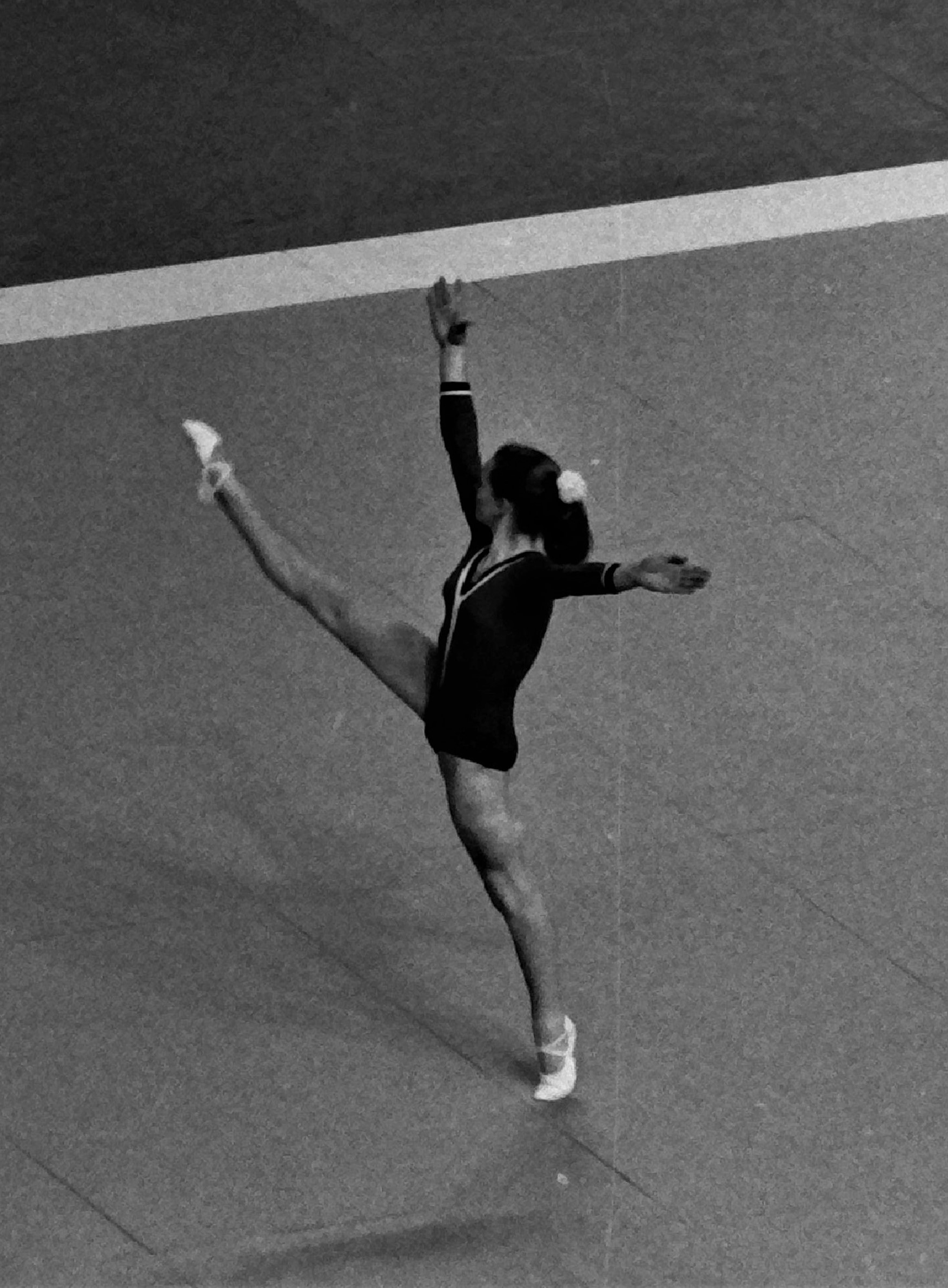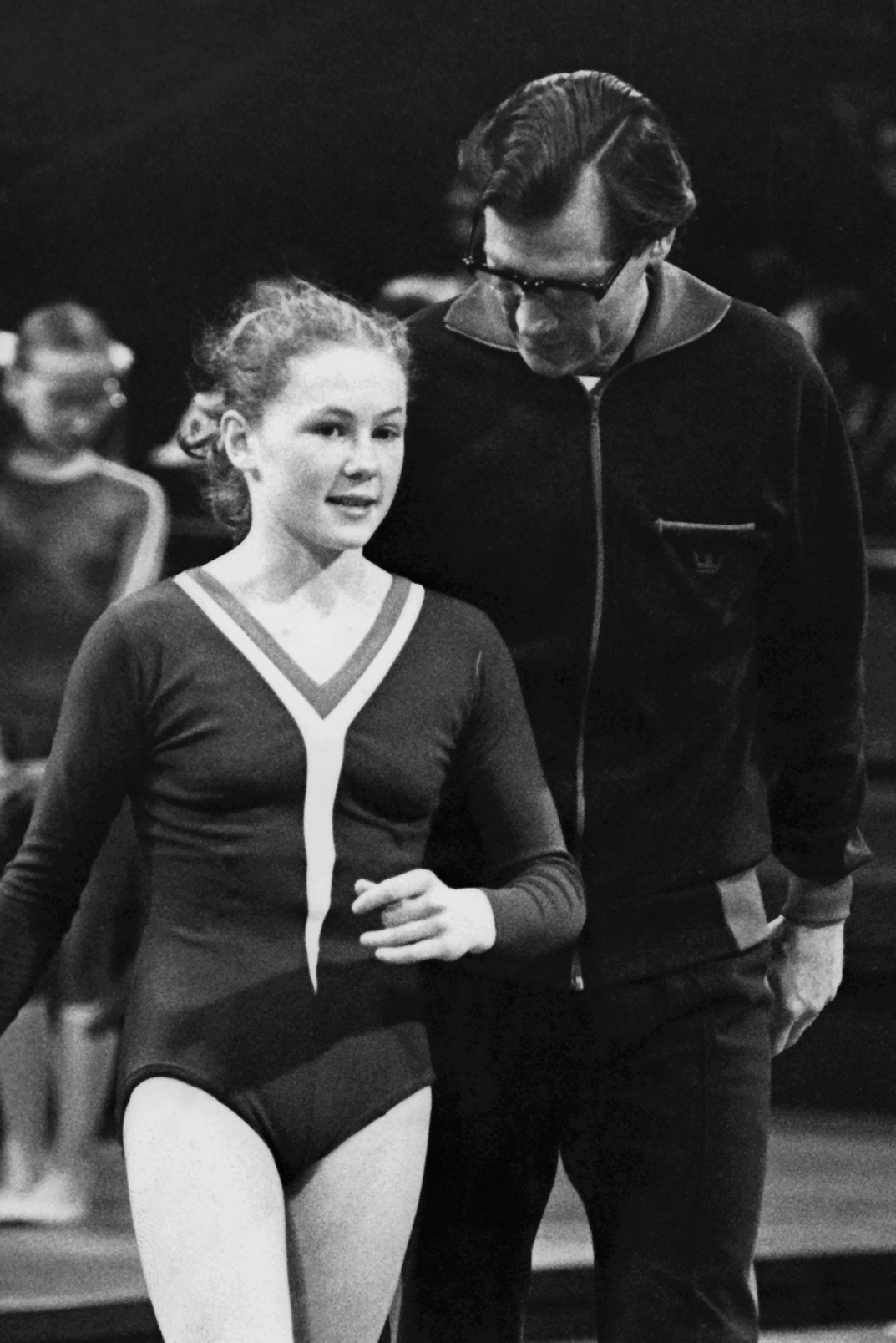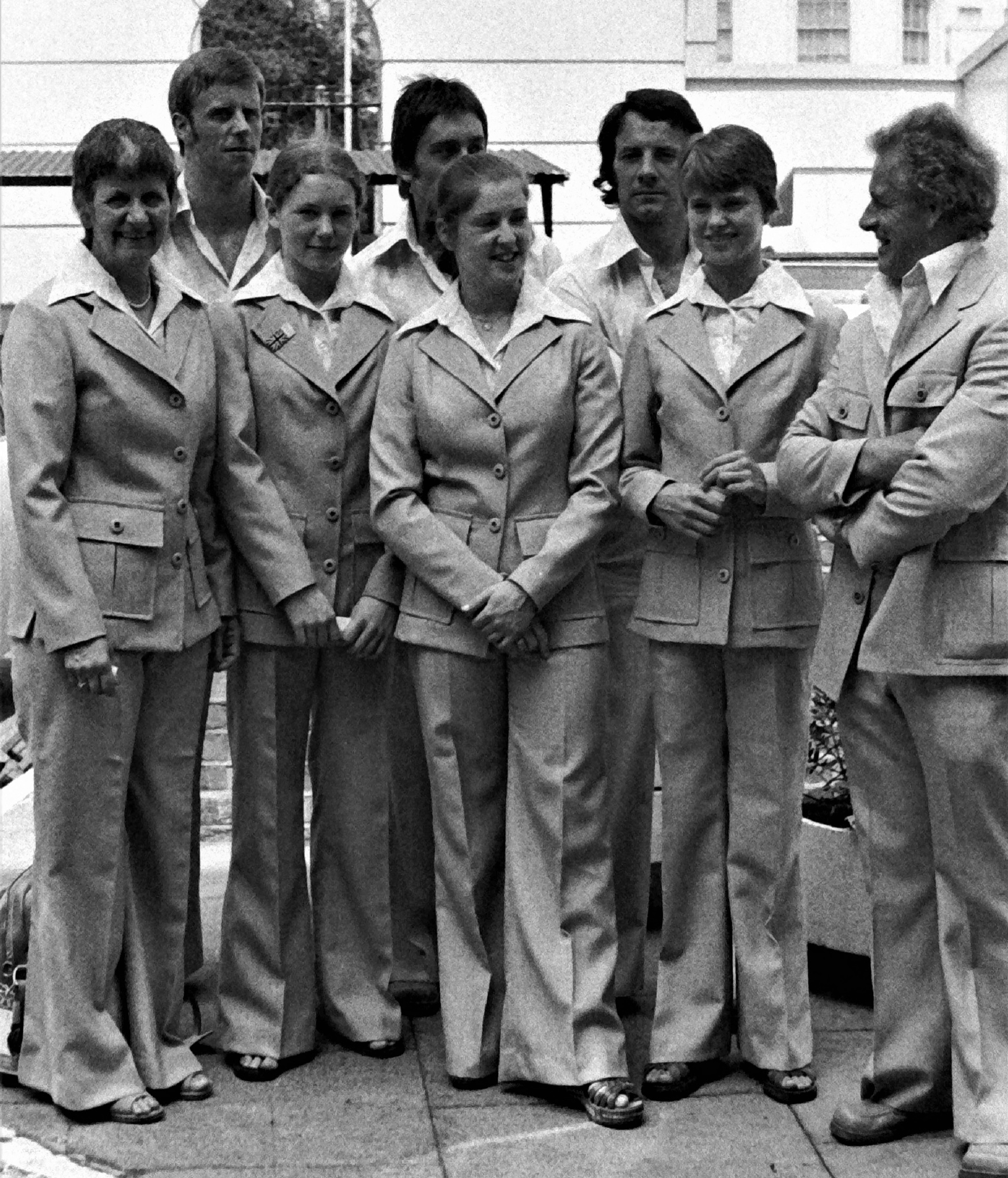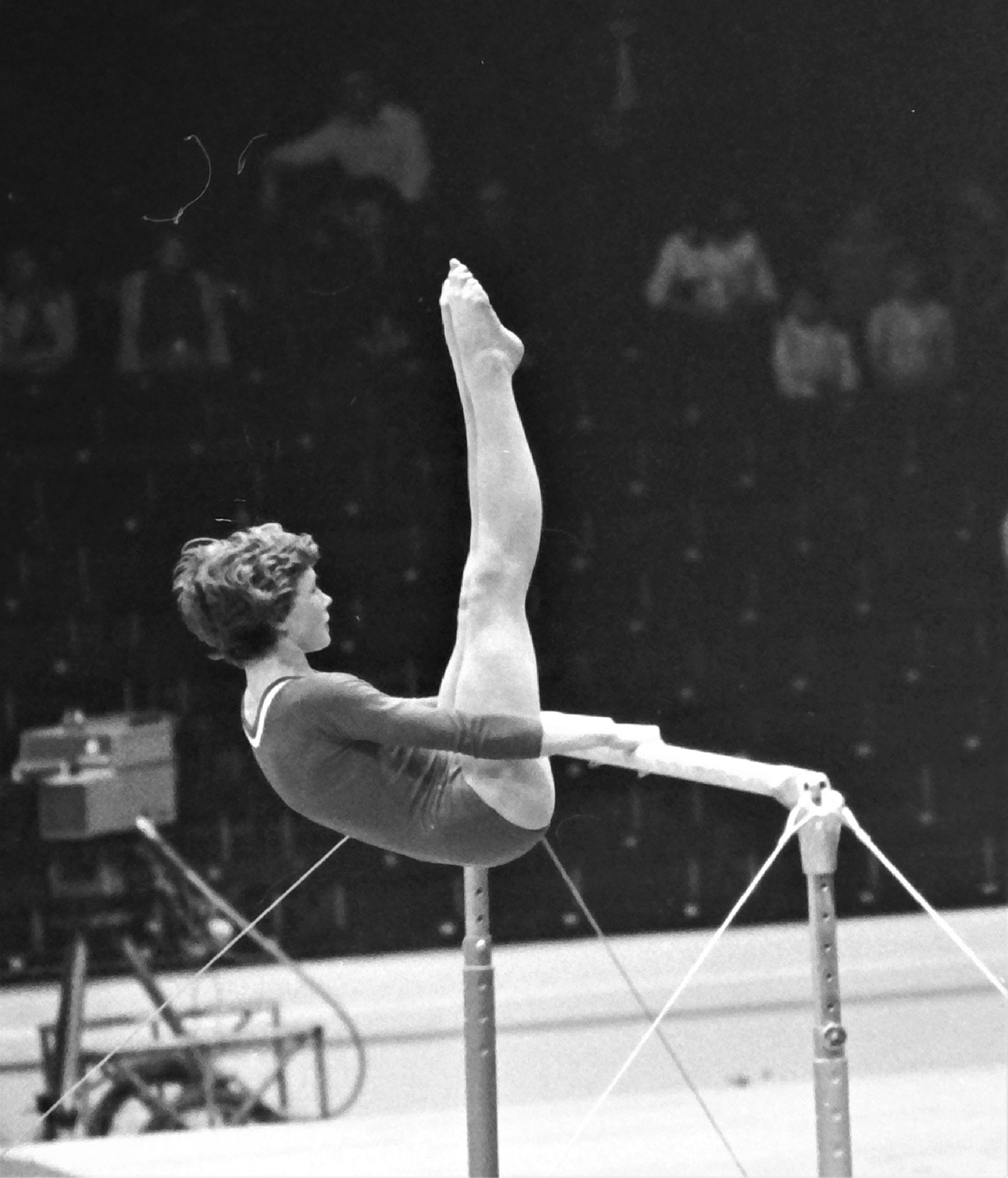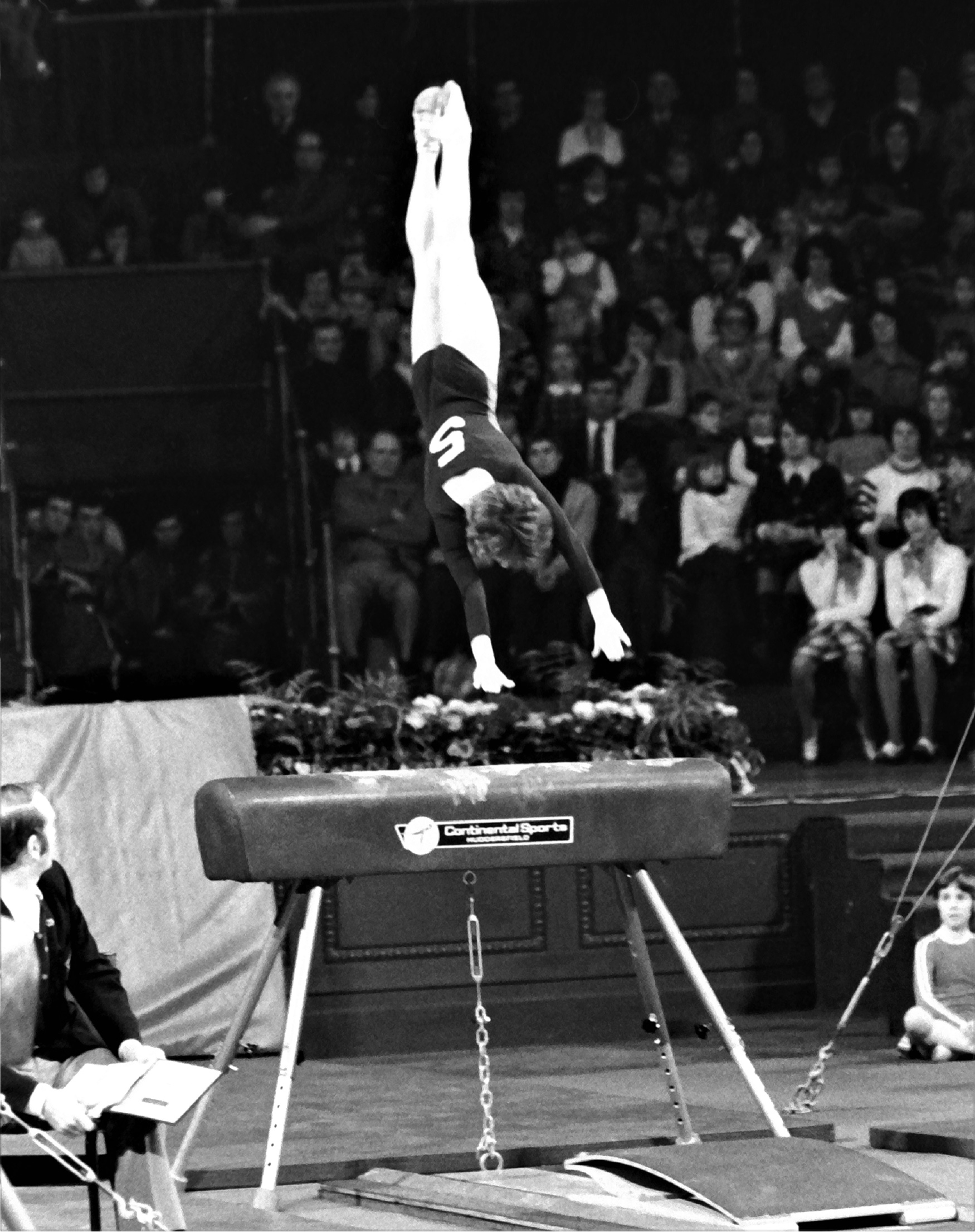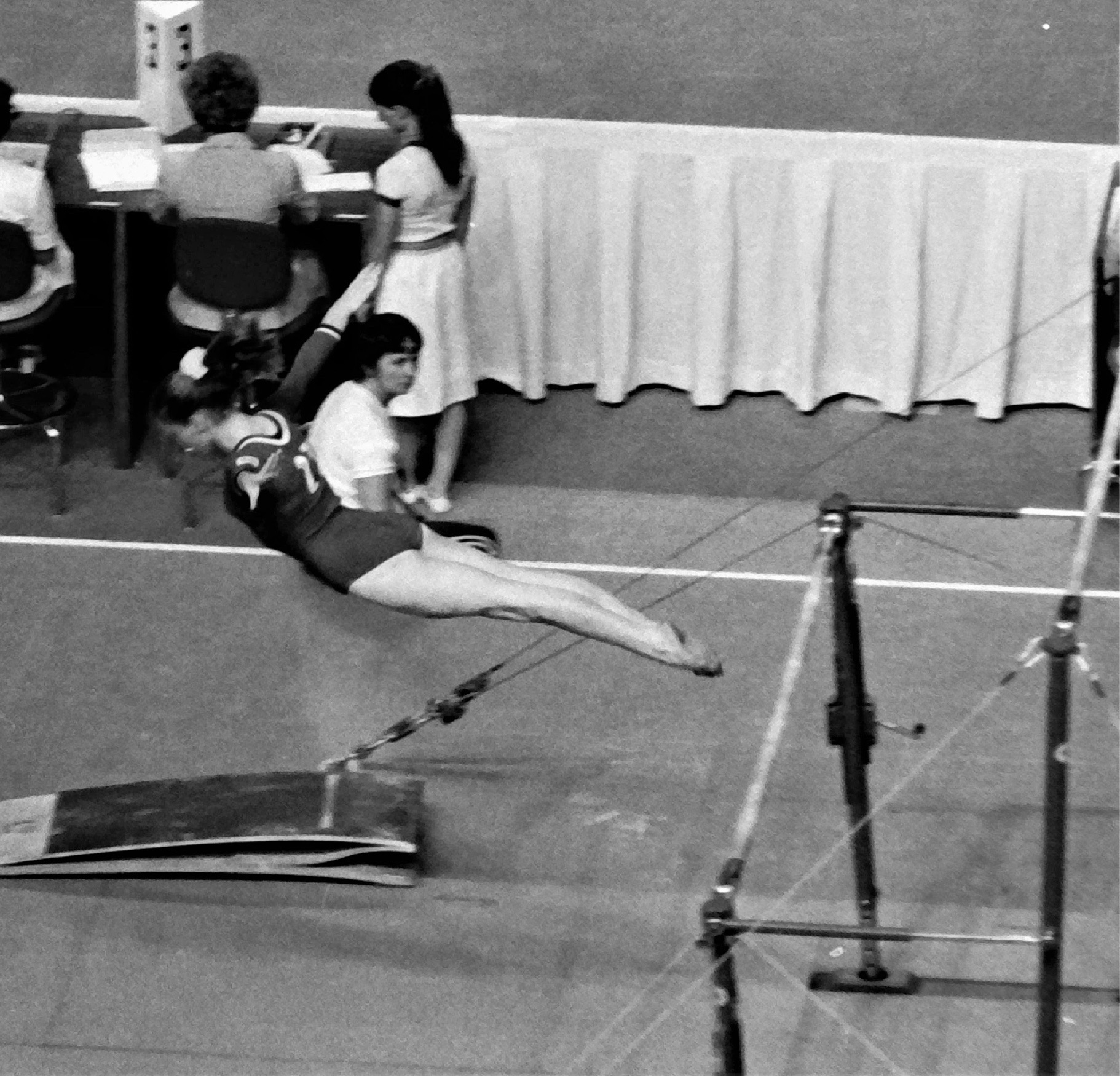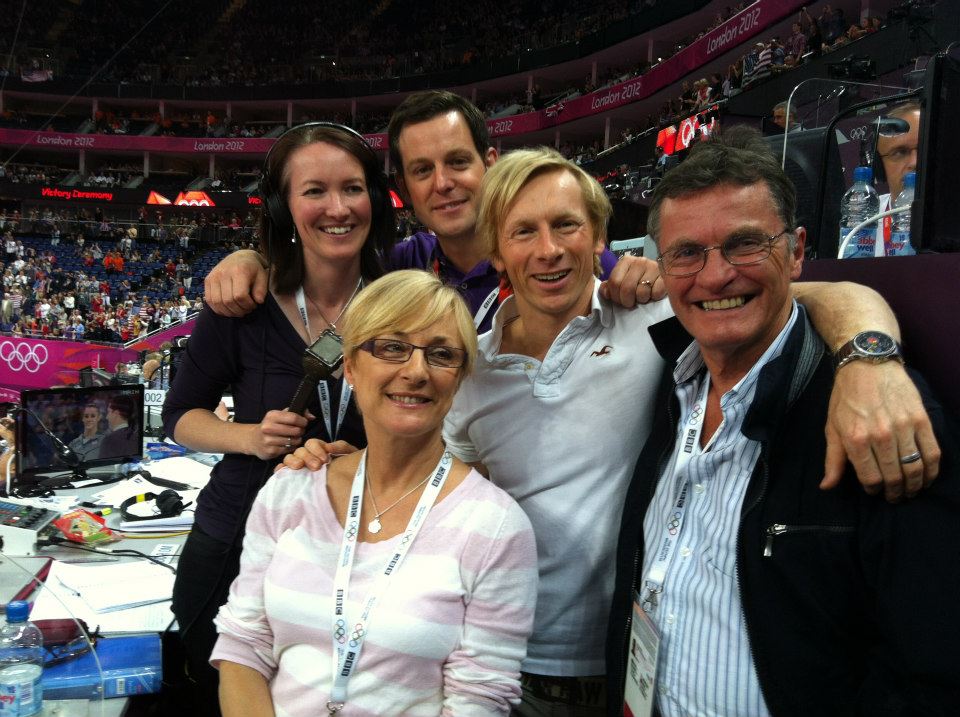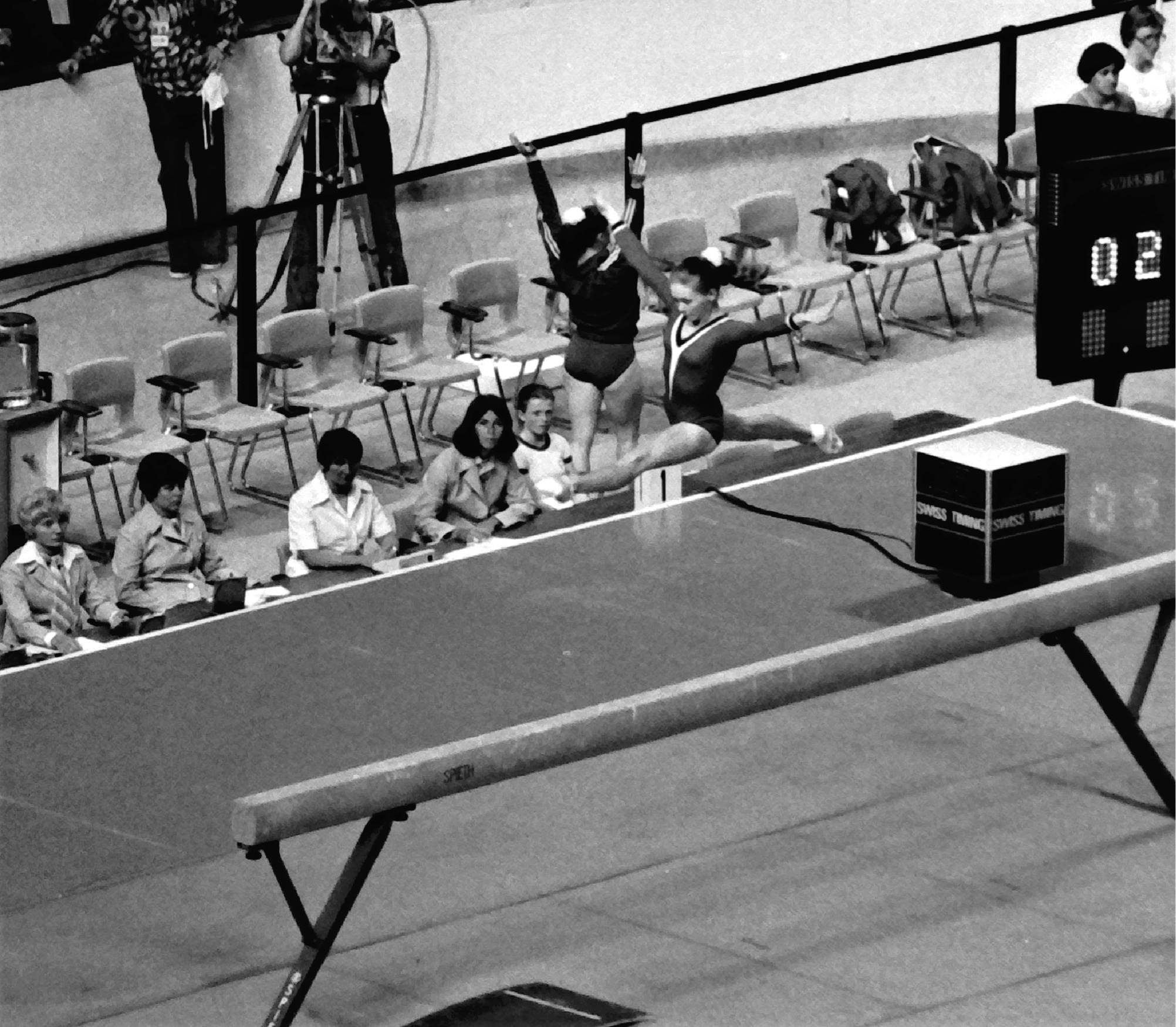BARBARA SLATER
by herself
Barbara Slater tells of her early life in gymnastics
I came to Gymnastics late. I didn’t take up the sport until I was the age of 12. In 1971 we moved cities and I started at senior school in Birmingham. I had been a diver and even competed in the Olympic trials aged 11. But when I arrived in Birmingham there were no diving boards across the city and a chance PE lesson at my senior school introduced me to the sport of gymnastics. At one of my first PE classes we were all practising handstands. I don’t know why but for some reason I could balance on my hands and the PE teacher challenged me to walk across the gymnasium on my hands – I managed this and was invited to join the school gymnastics club.
From there I learned to love the sport, spending every lunch time and after school in the gym. I wanted to pursue it more and more seriously. Then in 1972 when I was still just a novice gymnast, I watched the Munich Olympics. Not just Olga Korbut who stole the headlines, but all the wonderful Russian and East German gymnasts who were so stunningly graceful – the likes of Ludmilla Tourischeva and Elvira Saadi. It was an inspiration and I was determined to try and follow in their footsteps. It took another 3 years for me to be a member of the National squad and to earn my first international cap. In 1975 we set about a whole series of international matches which were qualification for the 1976 Olympics in Montreal.
Proudest moment
I can honestly say that one of the proudest moments of my life was to receive a phone call to say I have been selected to represent Great Britain in the Olympics alongside my teammates Avril Lennox and Susan Cheesebrough. I have so many special memories of that Olympic experience. It was the first time I had been part of a team with athletes from other sports and that was incredibly special. It was fantastic to be kitted out with all the team GB uniform. I still have the red dress and jacket we wore in the Opening Ceremony in the wardrobe somewhere. I can’t bear to throw it away even if it doesn’t fit anymore! I remember staying in the Olympic Village with the extraordinary food halls with delicacies from all the different countries – you could take just what you wanted.
Above L – R 1976 Olympic Team with Pauline Prestidge (coach), Ian Neale, Barbara, Tommy Wilson, Avril Lennox, Jeff Davis, Susan Cheesebrough, Nik Stuart (coach). Photo Jim Prestidge.
Montreal Opening Ceremony
At that time my father was my coach but he wasn’t officially accredited so couldn’t get into the Olympic Village. I remember sneaking him food parcels of the best variety of foods from around the world. He was very, very, well fed! One of my most abiding memories is of that Opening Ceremony. We gathered outside as a team. To reach the arena we had to walk through a dark tunnel to then emerge in the full blaze of the stadium spotlights. There is an expression ‘takes your breath away’ and in that moment that is exactly how it felt. Suddenly there was a wall of noise, cheering and waving crowds as far as your eyes could see. Gymnasts are often the smallest members of the team so it was a great privilege to experience this from the front row of the marching team.
Nadia’s 1.00
Another incredible memory came while I was competing in the compulsory set exercises on day 1 of the competition. The routines we had to perform were set by the FIG (similar to the figures in Ice Skating) and had to be followed precisely. We were competing in the same competition as the Romanian team – they were on bars. Nadia Comaneci was their star performer. She finished her set routine and up on the scoreboard came the mark of 1.00. Had she made a mistake that we hadn’t spotted? Had she put the moves in the right order? Had she messed up? It didn’t take long to realise that in fact her routine was perfect. The scoreboard could not cope with a mark of 10.00 and had only ever been built for a maximum of 9.99 – they had no choice but to show her score as a 1.00. The arena erupted and it was the first time a perfect score had been awarded in gymnastics. How lucky was I to be there to witness that moment in history first hand.
Pioneers and role models
The Montreal Olympics will always be one of my most cherished memories. It was fantastic to be able to compete against the best in the world. In those days the opportunities for training in the UK did not compare with many of the countries we competed against and we watched in awe at some of the extraordinary performances and breath-taking routines. As a competitor in that era it makes the achievement of our current British Gymnastics team even more remarkable. They now compete equally with the very best in the world and have achieved extraordinary success as Olympic and World Champions. The likes of Neil Thomas, Beth Tweddle, Louis Smith and Max Whitlock to name just a few. They have been pioneers and wonderful role models that are an inspiration to not just former competitors like myself but to a whole new generation of gymnasts and champions of the future.
What does Barbara do next?
Barbara carried on with her gymnastics after Montreal, competing at the European Championships and winning the Champions Cup in 1977.
She had previously come 2nd to Avril Lennox in the British championships in 1975 & ’76. She was awarded the Master Gymnast Award by British Gymnastics. She went on to study sports science at Birmingham University and then Human Biology at St Johns College Oxford
She had a taste of television when she starred in the 1978 BBC Children’s series Out of Bounds where her gymnastic talent was required. She co commentated on the gymnastics at the 1980 Olympics enthusing on the floor exercise from Yelena Davidova, the eventual Olympic champion.
In 1983 she got a job at the BBC as a trainee assistant producer and a year later joined the sports department. So, she progressed through the ranks of BBC sport to become head of sports production and then finally to become the BBC Director of Sport in 2009 becoming the first woman to hold this position.
Christine Still remembers
“In 1993 Barbara Slater offered me the opportunity to commentate on gymnastics for the BBC. Barbara was the producer for gymnastics and she worked in the commentary box with us until 2008.
Barbara always always took a special interest in the performances of our GB gymnasts and when it became apparent at the Olympic Games last year that there was a possibility of a team medal for the GB womens team, she came down quickly from her office in Salford to the commentary boxes we had at media city to share with us this amazing result.
The almost unbelievable achievement of the Olympic Bronze medal for the women’s team was a triumph for all the people who have worked so hard in the sport to achieve success on the world stage. When Barbara competed as a gymnast in the 1976 Olympics we didn’t even qualify a team, the first time the women achieved that at a non boycotted Olympics after 1972*, was 2000 in Sydney.
We, the commentary team celebrated with Barbara as part of the gymnastics programme in GB. It was an amazing moment.”
*Full teams of GB women competed in 1928, 1936, 1948, 1952 and 1960 when qualification was a matter of entering a team. In 1972 the qualification process for the right to enter a team had started and the women’s team managed to qualify at this time.
Awards for Barbara
Barabar was awarded an OBE in 2014.
In 2020 she was awarded the SVG Achievement Award Europe Women. View Barbara’s acceptance speech.
In 2021 she was awarded the IBC 2021 International Honour for Excellence.
Published October 2022
CLICK IMAGES TO VIEW FULL SIZE
Est. 2018 | © GymnasticsHistory.co.uk 2025

